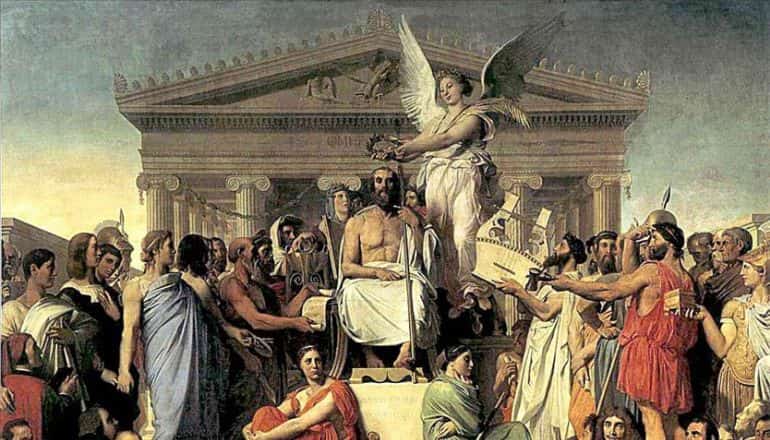Ancient Rome was a polytheistic society, and its people worshipped a pantheon of gods and goddesses. The major gods and goddesses of ancient Rome included Jupiter, Mars, Venus, and Minerva, among others. These deities played significant roles in Roman mythology and religion, and they were worshipped through various rituals and ceremonies.
Jupiter was the king of the gods and the god of the sky and thunder. He was the most important god in the Roman pantheon, and he was often depicted with a thunderbolt and an eagle. Jupiter was worshipped through various rituals, including sacrifices and the celebration of the festival of Jupiter Optimus Maximus.
Mars was the god of war and the son of Jupiter. He was often depicted wearing a helmet and carrying a spear and shield. Mars was worshipped through various military rituals and ceremonies, including the celebration of the festival of Mars Ultor.
Venus was the goddess of love and beauty. She was often depicted with a mirror and a dove, and she was worshipped through various rituals, including the celebration of the festival of Venus Verticordia.
Minerva was the goddess of wisdom and learning. She was often depicted with a helmet, a shield, and an owl, and she was worshipped through various educational and intellectual rituals, including the celebration of the festival of Minerva.
In conclusion, the major gods and goddesses of ancient Rome played significant roles in Roman mythology and religion. These deities were worshipped through various rituals and ceremonies, and they provided a sense of cultural identity and community.
Works Cited:
Beard, Mary, John North, and Simon Price. Religions of Rome: Volume 1, A History. Cambridge University Press, 1998.
Grant, Michael. Gods and Mortals in Classical Mythology. Barnes Noble Books, 1991.
Rüpke, Jörg. A Companion to Roman Religion. Wiley-Blackwell, 2007.








